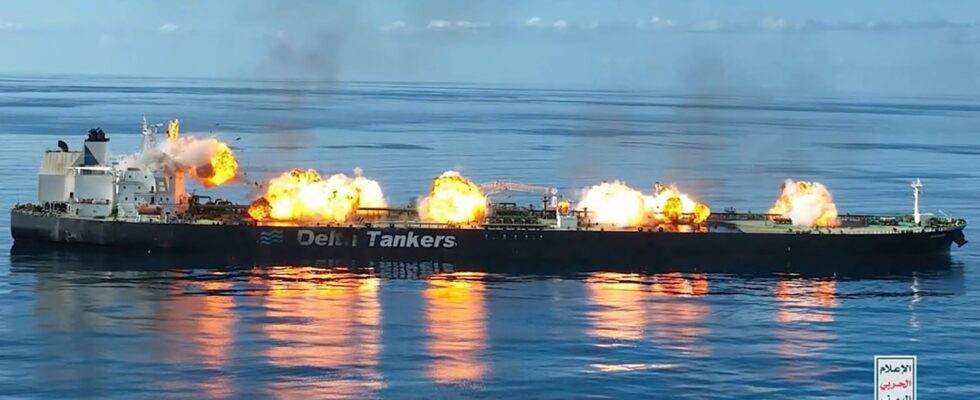One more element against Vladimir Putin’s Russia in the destabilization enterprise that it is trying to carry out across the globe. According to revelations from Wall Street Journalthe Kremlin is said to have actively aided Yemen’s Houthi rebels in their attacks on international trade in the Red Sea. Moscow is said to have transmitted satellite data to help the pro-Iranian group target Western ships in the region.
Assistance which is welcome for the Houthis. Because since October 2023 and their first attacks in the name of their support for Hamas against Israel, the vast majority of commercial ships choosing to continue to use the Bab el-Mandeb Strait, off the coast of Yemen, have deactivated their radio signal on this passage. Enough to make their movements undetectable… except with the help of a high-quality satellite system. Material that the Houthis do not have, unlike Russia, which therefore provided them with this information through Iran, as affirmed by a “person familiar with the matter” and “two European officials of the defense” to the WSJ.
Divert attention and multiply fronts
For Russia, this logistical aid to the Houthis presents a double advantage. First of all, it helped to attract Western and particularly American attention away from the war in Ukraine. While the United States has established a maritime coalition to protect international trade and has struck rebel targets in Yemen, sometimes with assistance from the United Kingdom, all of these committed resources are weapons and munitions that ultimately do not appear in kyiv’s arsenal.
Thus, always according to the Wall Street JournalWashington had already spent a billion dollars and munitions last April to eliminate the Houthis’ drones and missiles, and protect navigation in the Red Sea. “For Russia, any outbreak is good news, because it diverts the world’s attention from Ukraine and the United States must commit resources – Patriot systems or artillery shells. And with the Middle East at stake “, the priority of the United States is obvious”, assures the American media Alexander Gabuev, director of the Carnegie Russia Eurasia Center, a think tank based in Berlin.
This ultimately inexpensive or engaging aid to the Houthi rebels is also part of the destabilization enterprise that Moscow seeks to carry out throughout the world. Spread of false information in Europe and the United States, support for military juntas in Africa, and therefore destabilization of international trade in the Middle East: all means are good for Russia to weaken Western democracies. All while continuing to cultivate its new strategic alliances, particularly Iran here.
A controlled commitment
Despite this, Russia has so far remained measured in its military support for the Houthis. Reuters notably revealed last September that Iran had served as an intermediary in secret discussions between the Yemeni rebel group and Moscow, with the aim of transferring Russian anti-ship missiles to them. More sophisticated and precise munitions that would further threaten Western interests in the region, but which the Kremlin does not appear to have provided so far.
US media also claim that Viktor Bout, the infamous Russian arms dealer released in December 2022 from a US prison in a prisoner swap with basketball player Brittney Griner, is trying to strike a deal for a sale of small caliber automatic weapons for nearly 10 million dollars with the Houthis. It is still unclear whether the Kremlin is directly behind this transaction or not, but it is difficult to imagine that Moscow’s approval was not given. Because the more chaos there is, the more Russia profits from it.
